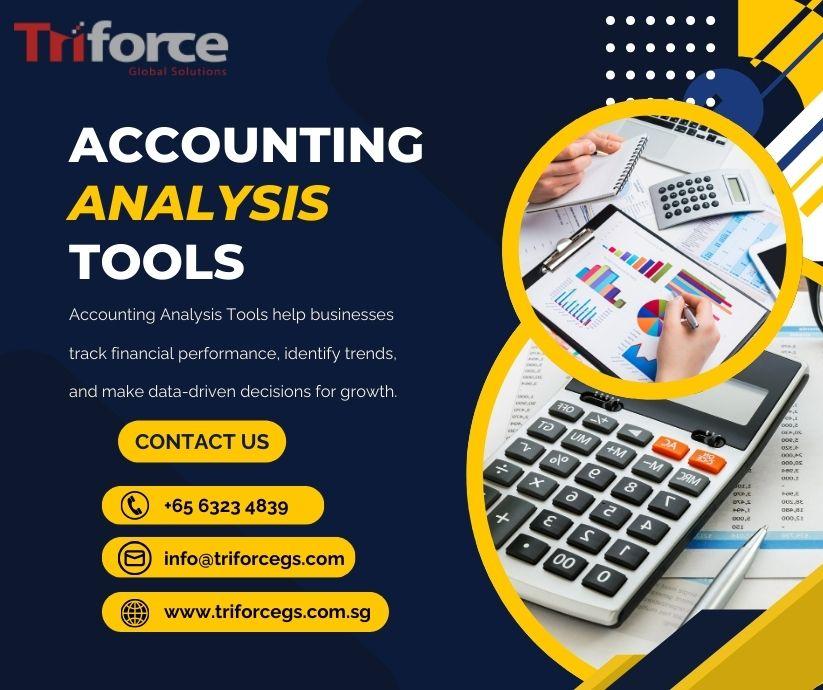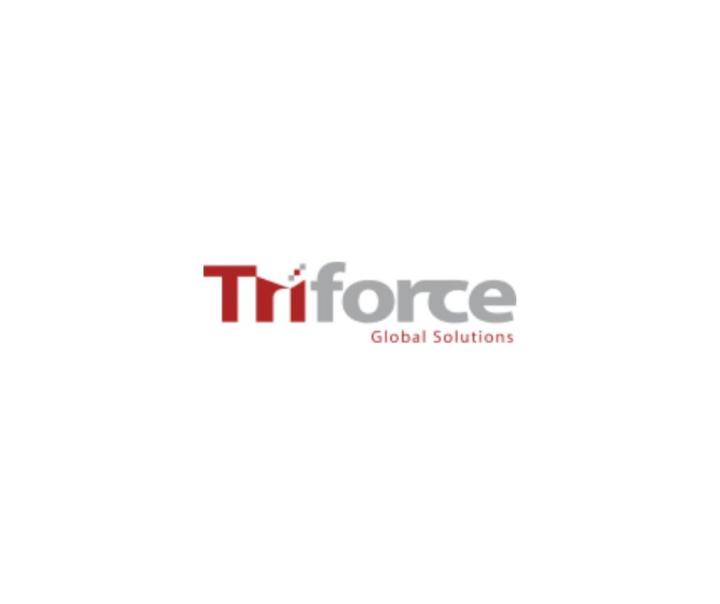Notifications

11 minutes, 11 seconds
-36 Views 0 Comments 0 Likes 0 Reviews

In the rapidly evolving landscape of finance and accounting, businesses are increasingly turning to technology to enhance their financial management processes. Among the most significant advancements are accounting analysis tools integrated within cloud financial solutions. These tools not only streamline accounting tasks but also provide valuable insights that drive strategic decision-making. This article delves into the importance of accounting analysis tools in cloud financial solutions, their benefits, and how they can transform financial operations for businesses of all sizes.
Cloud financial solutions refer to software applications hosted on remote servers and accessed via the internet. Unlike traditional on-premises software, cloud solutions offer flexibility, scalability, and cost-effectiveness. They allow businesses to manage their financial operations, including accounting, budgeting, forecasting, and reporting, from anywhere with an internet connection. This accessibility is particularly beneficial for organizations with remote teams or multiple locations.
Accounting analysis tools are specialized software applications designed to help businesses analyze their financial data. These tools provide insights into various aspects of financial performance, including revenue trends, expense management, cash flow analysis, and profitability. By leveraging these tools, organizations can make informed decisions that drive growth and improve financial health.
Data Visualization: One of the most significant advantages of accounting analysis tools is their ability to present complex financial data in an easily digestible format. Through dashboards and visual reports, users can quickly identify trends, anomalies, and key performance indicators (KPIs).
Real-Time Reporting: Cloud financial solutions equipped with accounting analysis tools offer real-time reporting capabilities. This feature allows businesses to access up-to-date financial information, enabling timely decision-making and proactive management of financial resources.
Automated Data Integration: These tools can automatically pull data from various sources, including bank accounts, accounting software, and ERP systems. This integration reduces manual data entry, minimizes errors, and ensures that financial analysis is based on accurate and comprehensive data.
Scenario Analysis: Accounting analysis tools often include features that allow users to run different financial scenarios. This capability helps businesses assess the potential impact of various decisions, such as changes in pricing, cost structures, or investment strategies.
Collaboration Features: Many cloud financial solutions facilitate collaboration among team members. Users can share reports, insights, and analyses in real-time, fostering a collaborative approach to financial management.
Enhanced Decision-Making: By providing real-time insights and data visualization, accounting analysis tools empower decision-makers to make informed choices. This capability is crucial in today’s fast-paced business environment, where timely decisions can significantly impact an organization’s success.
Increased Efficiency: Automating data collection and analysis reduces the time spent on manual tasks. This efficiency allows finance teams to focus on strategic initiatives rather than getting bogged down in routine data entry and reporting.
Cost Savings: Cloud financial solutions typically operate on a subscription model, which can be more cost-effective than traditional software. Additionally, the efficiency gained through automation and real-time insights can lead to significant cost savings over time.
Scalability: As businesses grow, their financial management needs evolve. Cloud financial solutions with accounting analysis tools can easily scale to accommodate increased data volume, additional users, and more complex financial processes.
Improved Compliance and Risk Management: Accurate financial analysis is essential for compliance with regulatory requirements. Accounting analysis tools help organizations maintain accurate records and generate reports that meet compliance standards, reducing the risk of penalties and audits.
To successfully implement accounting analysis tools within cloud financial solutions, organizations should follow a structured approach:
Identify Business Needs: Before selecting an accounting analysis tool, businesses must assess their specific financial management needs. This assessment should include identifying key metrics, reporting requirements, and integration needs.
Choose the Right Solution: With numerous cloud financial solutions available, organizations should carefully evaluate their options. Factors to consider include ease of use, scalability, integration capabilities, and vendor support.
Data Migration: Transitioning to a new cloud financial solution requires careful data migration. Organizations should ensure that historical financial data is accurately transferred to the new system to maintain continuity in reporting and analysis.
Training and Support: Providing adequate training for finance teams is crucial for successful implementation. Organizations should invest in training programs to ensure that users are comfortable with the new tools and can leverage their full potential.
Monitor and Optimize: After implementation, organizations should continuously monitor the performance of their accounting analysis tools. Regularly reviewing and optimizing processes will help ensure that the tools continue to meet evolving business needs.
While the integration of accounting analysis tools within cloud financial solutions offers numerous benefits, organizations may face challenges during implementation:
Data Security: Storing financial data in the cloud raises concerns about data security. Organizations must ensure that their cloud financial solutions comply with industry standards and regulations regarding data protection. Implementing robust security measures, such as encryption, multi-factor authentication, and regular security audits, is essential to safeguard sensitive financial information.
Change Management: Transitioning to new accounting analysis tools and cloud financial solutions can be met with resistance from employees accustomed to traditional methods. Effective change management strategies, including clear communication about the benefits of the new system and involving employees in the transition process, can help mitigate resistance and foster a positive attitude toward change.
Integration Challenges: While many cloud financial solutions offer integration capabilities, organizations may encounter challenges when connecting existing systems with new tools. It’s crucial to choose solutions that are compatible with current software and to work closely with IT teams to ensure seamless integration.
Cost Considerations: Although cloud financial solutions can be cost-effective, organizations must carefully evaluate the total cost of ownership, including subscription fees, implementation costs, and ongoing maintenance. A thorough cost-benefit analysis can help organizations make informed decisions about their financial technology investments.
As technology continues to evolve, several trends are shaping the future of accounting analysis tools and cloud financial solutions:
Artificial Intelligence and Machine Learning: The integration of AI and machine learning into accounting analysis tools is expected to enhance predictive analytics capabilities. These technologies can analyze historical data to identify patterns and trends, enabling businesses to make more accurate forecasts and strategic decisions.
Enhanced Automation: Automation will continue to play a significant role in accounting analysis. As tools become more sophisticated, they will automate more complex tasks, such as financial modeling and variance analysis, further freeing up finance teams to focus on strategic initiatives.
Real-Time Collaboration: The demand for real-time collaboration tools will grow as remote work becomes more prevalent. Future cloud financial solutions will likely incorporate enhanced collaboration features, allowing teams to work together seamlessly, regardless of their physical location.
Increased Focus on Sustainability: As businesses become more aware of their environmental impact, accounting analysis tools will likely incorporate features that help organizations track and report on sustainability metrics. This focus on sustainability will be essential for companies looking to align their financial strategies with corporate social responsibility goals.
Integration with Other Business Functions: Future cloud financial solutions will increasingly integrate with other business functions, such as supply chain management, customer relationship management (CRM), and human resources. This holistic approach will provide organizations with a comprehensive view of their operations, enabling better decision-making across the board.
The integration of accounting analysis tools within cloud financial solutions represents a significant advancement in financial management. By leveraging these tools, organizations can enhance their decision-making capabilities, improve efficiency, and gain valuable insights into their financial performance. While challenges exist, a structured approach to implementation, combined with a focus on data security and change management, can help organizations successfully navigate the transition.
As technology continues to evolve, the future of accounting analysis tools and cloud financial solutions looks promising. By staying ahead of trends and embracing innovation, businesses can position themselves for success in an increasingly competitive landscape. Ultimately, the combination of accounting analysis tools and cloud financial solutions will empower organizations to make informed financial decisions, drive growth, and achieve their strategic objectives.
Untitled 0 0 0 11 4
4 photos

